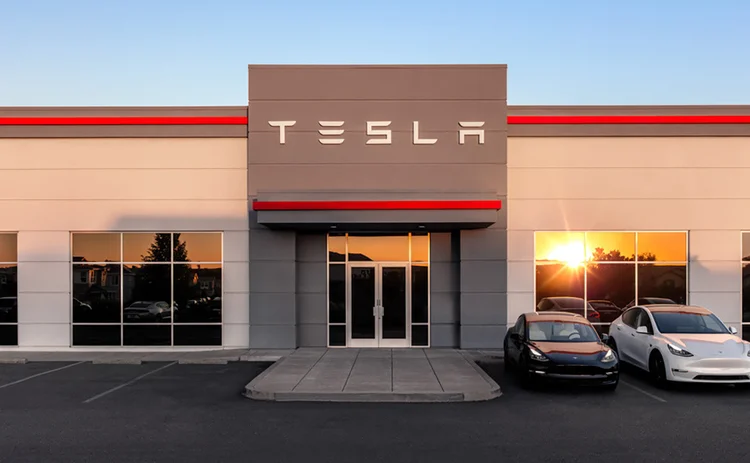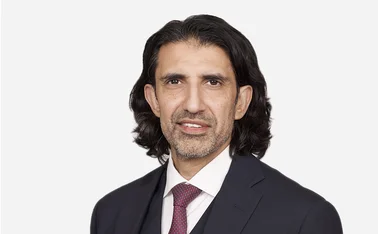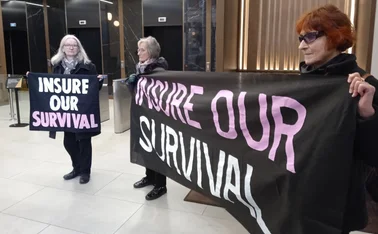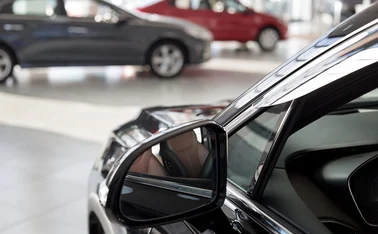
Is Tesla's imminent UK insurance entry the 'revolution' that has been threatened?

Analysis: After Insurance Post reported Tesla had submitted Companies House listings to set up an in-house insurer in the UK, we examine is this good or bad news for electric vehicle drivers?
It would appear the two richest men on the planet both have their eye on the UK insurance market.
In October last year, Jeff Bezos’ Amazon announced it was entering the UK insurance market with the Amazon Insurance Store, comparing prices for home and contents insurance.
Not to be outdone, it looks as though Elon Musk is gearing up for his big entrance into UK insurance, with motor manufacturer Tesla submitting Companies House filings to set-up a UK branch of a European-based insurance company, Tesla Insurance Europe.
The autonomous and electric vehicle giant is also recruiting for a legal counsel to join its “full-stack in house insurer.”
Are we surprised?
Similar to Amazon, the idea of Tesla entering the UK insurance market has long been spoken about and anticipated.
Bart Patrick, chief revenue officer at Genasys, says it was an “inevitability."
He says: “It is definitely not coming out of the blue in terms of a motor manufacturer deciding that the time is right to jump into financial services. It’s an inevitability this was going to occur, because every car you drive now is pumping out data like never before, and the manufacturers own it.”
Greg Podleśny, co-founder of insurtech provider Acini, asks: “Are we surprised?”
Meanwhile Warren Hetz, UK CEO of Aioi Nissay Dowa Insurance, says an original equipment manufacturers having an interest in insurance is a “natural evolution.”
He says: “Increasingly with data and connectivity from the cars themselves, that together with the driving data that the insurers typically have access to, is giving another angle that enables this broader connected mobility offering that the OEMs are interested in.
“The combination of those two does make sense. Looking towards insurance, as they look from moving to be just vehicle manufacturers to mobility companies, is just a natural evolution.”
What could it look like?
The details of what a Tesla Insurance firm in the UK and Europe would look like is currently unknown and may be difficult to predict, according to Nick Kelsall, head of motor claims for Allianz Commercial.
“We don't know the full details of what Tesla is looking to do. It is a unique vehicle with a unique brand.”
However, we can take inspiration from the US offering, and the job advert Tesla posted, seeking a legal counsel to help the firm by providing “legal and regulatory advice relating to developing insurance products,” provide advice on local laws and regulations, “especially the Insurance Distribution Directive", and "how distribution channels for Tesla Insurance must be built to be compliant.”
Tesla is software and management information driven. It would be able to insure a risk down to a second, as opposed to a set annual term policy.
Toni Dines
After reviewing the job advert, Toni Dines, founder and CEO at Boxtree Recruitment, says: “Tesla is software and management information driven. It would be able to insure a risk down to the second, as opposed to a set annual term policy.
"The ‘re-thinking the way’ part makes me feel like it will be subscription and usage-based costed insurance. So if your car sits unused for a week, you pay the lowest rate, then when you drive it, your driving statistics could affect your insurance based on your speed and safety, etc."
However, Dines believes the advert hints at Tesla carrying on it's 'challenger' reputation.
"The fact it's legal not compliance makes me think Tesla will challenge the regulation from the Financial Conduct Authority, not build the solution around it. A product that’s perceived as insurance, but isn’t."
US operations
As already reported, Tesla has been offering its own insurance products in the US since 2019, offering embedded insurance to Tesla customers when buying a new car.
At the moment, Tesla offers insurance to its motor vehicle customers in 12 states. In a Q4 and 2022 earnings call, Tesla chief financial officer Zach Kirkhorn revealed in the US states where Tesla offers insurance, on average, 17% of vehicle customers are also using a Tesla Insurance product.
Musk, however, has vocalised ambitions to grow the insurance business further. In a 2020 earnings call, Musk said he plans to build a “major insurance company,” according to CNBC.
It is apparent that the insurance company Tesla creates in the UK and Europe will be different to the one already in operation across the pond, due to the different regulations in place. But, it could be safe to assume it will be a reworking of the US model.
Benefits
Musk and Kirkhorn, in the earnings call, said the reason behind creating an insurance product was to drive down prices offered by third party providers, reducing the total cost of ownership for Tesla customers.
Podleśny says Tesla will be setting up an insurance company in Europe with a different mindset to the current providers, and so far in the US, premiums through Tesla Insurance have proved to be less than competitors.
He says: “In Texas, compared to competition, Tesla is offering nearly half the price for insurance according to some sources.
“Tesla is not looking at insurance to win the insurance market. It's much more looking at the insurance from the point of view that insurance is the part of the vehicle. So it is the point of view from a total cost of ownership.”
The other benefit Musk mentioned was the ability to gain feedback on the designs of its cars through the data it collects.
He said: “It is giving us a good feedback loop into minimising the cost of repair for all Teslas worldwide, because obviously we want to minimise the cost of repairing a Tesla if it’s in a collision, and for Tesla Insurance.”
Patrick says now Tesla will have to pay out when a repair is needed, it will be looking at ways to make the claims process cheaper.
“Tesla is probably redesigning the car so you can do a little bit of a fender bender, and it's not going to write the car off," he said. "That's pretty essential. And that is something that it may not have taken into account when they were just a car manufacturer. It is that problem that actually creates a virtuous circle, which is they have to design cars to repair not only safer, but also cheaper because it's on their dollar.”
But Kelsall says the redesigning of cars because of insurance data already happens.
“We do this already,” he says. “And we don’t just do this at vehicle level, we do this at a business level.
“At Allianz, we work really hard in risk mitigation, and using the data. using the claims experience, looking at the telematics to do the risk management.”
But, for Tesla using insurance information to make changes in the design and build of its vehicles to reduce claims costs will ultimately be a good thing, as, at the moment, the cost of repair on electric vehicles are considerably greater than those of internal combustion engine vehicles.
This is due to the complexity of the build, supply issues for parts and the demand for EV specialist engineers at workshops.
But Kelsall says the infrastructure around EVs is improving.
“We've started to see them [EVs] out-register internal combustion engines. The announcement from the government that you will be unable to sell new ICEs from 2030 put the focus on it.”
Kelsall reveals that Allianz Commercial, for its EV motor fleet product, has seen a 200% increase in claims data for the period between January 2021 and January 2023.
He says: “If that continues at that rate, there'll be exponential growth, and therefore the market and the industry will significantly change to meet that demand.”
Kelsall says that the industry is learning about the types of damage that can occur when an EV is involved in a collision.
“We're starting to see we are potentially total loss-ing more vehicles because of the risk of fire of damaged batteries. We're learning now about the real implications of that, how to mitigate against that, and we're seeing really good innovation and collaboration across the industry to try and ensure that EVs, when they are in an accident, they are not driving up inflation, because this is not what we want in a world where sustainability is core to everything we're trying to do at the moment.”
Revolution? Or dangerous?
So, is Tesla entering the insurance market with its own “full-stack in house” company, owning the whole process of underwriting and seeing through to the repair and closing of claims, a good thing?
Podleśny says it could be good for the customer to know the company that made your vehicle is the one responsible for fixing it, and that because of the design of Tesla vehicles, the process of a claim could be very smooth.
Tesla is in a unique position compared to other manufacturers. With their car, it's nothing else but a driving laptop. They know what happens to the car because of its real time data. This means that when I have a collision, they already know which parts of the car were injured.
Greg Podleśny
“Tesla is in a unique position compared to other manufacturers. With the car, it's nothing else but a driving laptop. They know what happens to the car because of its real time data. This means that when you have a collision, they already know which parts of the car were injured.
“So, they can tell you to take your car to the nearest approved repair shop, and at the same time, start ordering the parts. I'm not sure whether other car manufacturers are in such a position.”
Patrick sees this as good news for customers, but warns current motor insurers that if other manufacturers follow suit, they will need to “move the dial” on efficiency very quickly to keep up.
“Tesla drivers are going to get great premiums. But if the other manufacturers follow, what does that leave insurance with?
“I don't see any changes in efficiency in terms of expense ratios within these businesses. The ratios have always been about the same, no matter how much insurers have spent on trying to be efficient and outsourcing certain aspects of the process.
"They haven't moved the dial. Is this the time where they have to start moving the dial properly and really doing it right?
“It's a fascinating future for insurance. And I actually think it could be good. I think it's something that we should, as consumers embrace. I would hope in some ways, the rest of the manufacturers get involved, because it could be something that is really good.
“Maybe this could be the revolution that's been threatened for a while.”
However, Kelsall believes competition and collaboration is what makes insurance great, and allowing a manufacturer to own every part of an insurance journey and supply chain could be “dangerous."
When you buy an insurance product, it's about risk, value and service. The beauty of the insurance market is that it's competitive, which means that having that sort of freedom of choice not only gives customers a choice that they can pick a product that suits their needs.
Nick Kelsall
He says: “When you buy an insurance product, it's about risk, value and service. The beauty of the insurance market is that it's competitive, which means having that freedom gives customers a choice that they can pick a product which suits their needs.
“Where it's dangerous that a manufacturer owns the whole end-to-end is where it comes down to the risk management side. A manufacturer owning all the data, the hardware, I think, is dangerous for the premium paying public, because who is holding them to account in terms of government safety obligations? Who's learning from the data? I think it's a bit of a risky environment. I'm not saying it's wrong, I'm not saying it's right. I think there needs to be an element of competition.”
Finally, Hetz says while Tesla may want to go it alone, other manufacturers may look to go down the collaboration route.
“We expect to see more collaboration between the insurance sector and OEMs," he says.
“I don't think all the OEMs will want to, or have the choice, to follow the same model as Tesla is following. I think it does come back to the complexity of insurance. Repairs only make up a small part of the claims. So I really do think that it does make sense for OEMs to leverage industry expertise, and work with insurance companies.
“There is a place for collaboration. Despite being an old industry with a lot of history, it has been very good at adapting over the years to technological change and developing insurance solutions and risk management solutions. As an industry we're very well equipped to navigate that change.”
While we still are unsure how this US giant will enter the UK insurance industry, if the job adverts and listings are anything to go by, we wont have to wait long to find out.
Only users who have a paid subscription or are part of a corporate subscription are able to print or copy content.
To access these options, along with all other subscription benefits, please contact info@postonline.co.uk or view our subscription options here: http://subscriptions.postonline.co.uk/subscribe
You are currently unable to print this content. Please contact info@postonline.co.uk to find out more.
You are currently unable to copy this content. Please contact info@postonline.co.uk to find out more.
Copyright Infopro Digital Limited. All rights reserved.
As outlined in our terms and conditions, https://www.infopro-digital.com/terms-and-conditions/subscriptions/ (point 2.4), printing is limited to a single copy.
If you would like to purchase additional rights please email info@postonline.co.uk
Copyright Infopro Digital Limited. All rights reserved.
You may share this content using our article tools. As outlined in our terms and conditions, https://www.infopro-digital.com/terms-and-conditions/subscriptions/ (clause 2.4), an Authorised User may only make one copy of the materials for their own personal use. You must also comply with the restrictions in clause 2.5.
If you would like to purchase additional rights please email info@postonline.co.uk








